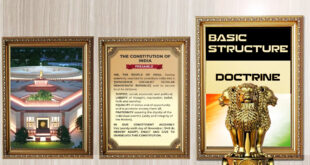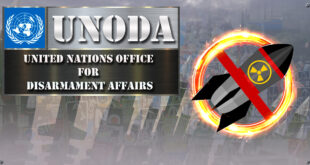It was a day when the gloves were off. The spiralling trade war between China and the U.S. visibly mutated into what appeared to be the beginning of a new Cold War. On October 8, when Beijing was in its mid-autumn prime, Mike Pompeo, the U.S. Secretary of State, wheeled into the Diaoyutai guest house. The stately facility of elegant buildings and vast green spaces is China’s icon for high-browed diplomacy. Soon after, he was seated opposite Wang Yi, China’s Foreign Minister, who had only months ago been elevated to the additional, and more senior, post of State Councilor. Despite the elegance of the setting, a pleasant exchange between the two top diplomats of the world’s largest and second largest economies was not in the offing. Days before Mr. Pompeo’s arrival, U.S. Vice-President Mike Pence had muddied the waters of Sino-U.S. ties. In a speech at the Hudson Institute, evocative of the McCarthy era in the U.S., Mr. Pence blamed China for most of the ailments that afflicted the U.S. — from its perceptible economic decline to the erosion of its soft power due to alleged subterranean inroads by China. Mr. Pence’s address followed what had riled China most — the imposition of sanctions on one of its companies, which had bought weapons from Russia. The battleships of the two navies also had a close brush with each other in the turbulent waters of the South China Sea, ahead of Mr. Pompeo’s visit. A frosty exchange between Mr. Wang and his U.S. guest was thus inevitable. But the harshness of the rhetoric, in full public glare, took even veteran watchers of Sino-U.S. fractious diplomacy by surprise. In the testy back-and-forth, Mr. Wang slammed the U.S. for making “a series of moves” on Taiwan, as well as “other issues” that targeted Chinese sovereignty. He was apparently referring to the Taiwan Travel Act, which had opened the gates for high level U.S. visits, followed by last month’s announcement that Washington would sell weapons worth $330 million to Taiwan. Unsurprisingly, the state broadcaster China Global Television Network (CGTN) nailed an inflection point in the Trump administration’s dealings with China. “This relationship has entered a period of turbulence after the White House and the Department of Defense released the National Security Strategy and National Defense Strategy, respectively, labelling China as a ‘revisionist power’ and ‘strategic competitor’, thus basically setting the administration’s tune for its policies toward China,” a commentary on the CGTN website observed. The article warned that in its all-dimensional attack, the U.S. is likely to seek its isolation by using China’s “non-market economy” status. That would be used as a tool to dissuade Washington’s allies from deepening their economic engagement with Beijing.
Source : https://www.thehindu.com/todays-paper/tp-international/mike-pompeo-and-the-new-cold-war/article25217749.ece
Check Also
Promoting Global Security and Peace: The Multifaceted Mandate and Initiatives of UNODA
TABLE OF CONTENTS UNODA Objectives and Functions Key Initiatives and Programs I.UNODA: United Nations Office …
 Chinmaya IAS Academy – Current Affairs Chinmaya IAS Academy – Current Affairs
Chinmaya IAS Academy – Current Affairs Chinmaya IAS Academy – Current Affairs



